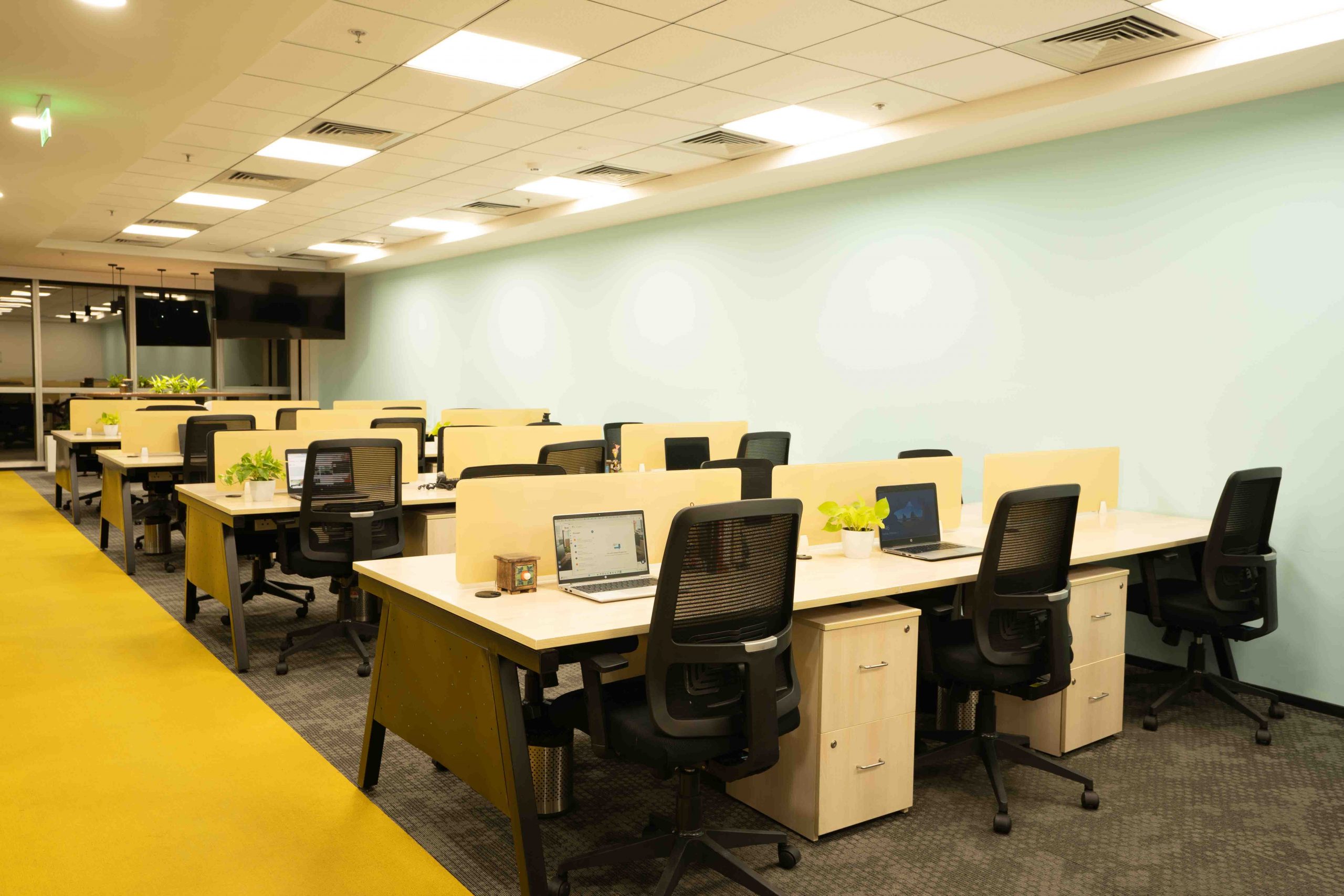
Artificial intelligence and smart technology are advancing rapidly and are now significantly altering the operational dynamics of serviced offices in 2025. These developments represent not merely future concepts but tangible innovations that enhance productivity, efficiency, and functionality within the workplace.
As AI, IoT, and automation combine, workplaces become more intelligent, efficient, and personalised. Serviced offices are at the forefront of this evolution, experiencing profound changes as AI and advanced technologies increasingly integrate into the working landscape of 2025 and beyond. This blog will explore the mechanisms driving this transformation and its implications for the future of work.
Generative AI: The Foundational Building Block for Intelligent, Efficient Buildings
Generative AI, once considered a buzzword predominantly embraced by technology enthusiasts and futurists, has evolved into a mainstream element of smart building solutions now Contemporary serviced offices are now integrating AI agents to enhance and streamline building operations. These AI agents are capable of managing a wide range of applications, including heating, ventilation, and air conditioning (HVAC) systems, as well as security protocols, ensuring they operate at peak efficiency while also addressing the specific needs of tenants and occupants.
The focus is on practical business impact rather than technology for its own sake. Artificial intelligence agents address tangible challenges rather than merely showcasing the latest technological advancements. Serviced Office Spaces in Hyderabad, such as iKeva, are utilizing these intelligent solutions, thereby enhancing operational efficiency to unprecedented levels while concurrently optimizing energy consumption, reducing costs, and improving the overall tenant experience.
Autonomous Building Controls: AI Techniques for New Operational Insights
Imagine a building equipped with a system that not only responds to issues, such as a malfunctioning air conditioner but also anticipates problems before they occur, thereby minimizing downtime. Yes, one of the most significant applications of artificial intelligence in serviced offices is the implementation of autonomous building controls. AI has transitioned from being just an innovative concept to a fundamental component of building management. These systems will facilitate proactive monitoring of maintenance issues and predict & provide real-time data to optimize environmental conditions and energy consumption for each tenant. These AI-driven systems will ultimately create an integrated ecosystem that effectively manages the interactions and needs of the building occupants. Furthermore, this system will enhance energy efficiency by analyzing occupancy patterns to enable real-time adjustments in lighting and heating, ventilation, and air conditioning (HVAC) settings.
IoT-Enabled Personalized Work Environments
The Internet of Things (IoT) is revolutionizing workplace interactions. In 2025, serviced offices have evolved into personalized workspaces that enhance individual work environments. Enabled by IoT-driven smart desks, chairs, and lighting systems, employees will have the ability to customize their workspaces according to their specific preferences.
Climate and lighting control systems powered by AI will respond to occupancy and individual preferences, providing the ability for each person to personalize their working environment.
AI in Community Engagement & Member Experience
In the era of coworking and serviced offices, member experience is the key to attracting and retaining clients. Artificial Intelligence is at the forefront of improving community engagement by offering AI-backed networking and matchmaking solutions. They use data about members’ professional profiles and interests to recommend possible collaborations, promoting a more integrated and connected work atmosphere.
AI tools further optimize the way feedback is collected and sentiments are analysed, providing serviced office providers with real-time visibility of the needs and issues of their members. This data empowers providers to make industry-specific decisions focused on elevating the experience.
New Trends In Smart Offices
As we progress, serviced office spaces are blending with a myriad of trends that will evolve into something even smarter and conducive to the needs of the workforce today. Some of these include:
Conclusion
AI and smart technology are no longer just an addition to serviced office spaces; they are growing to become the very foundation that forms the fabric of what makes up future workspaces. Personalised work environments, autonomous building management, improved community engagement, and sustainability are just a few of the ways that these technologies will change the way we do business in 2025 and beyond.
By adopting these innovations, serviced office and shared office space providers such as iKeva are not only building smarter, more efficient spaces but also enriching their environments to be more connected, flexible, and sustainable. Welcome to the future of work powered by AI and smart tech.
iKeva in association with "WE@Headstart" brings Mentoring session for Women entrepreneurs. WE@Headstart aims to to build a community of women entrepreneurs…
The freelancer market is assuming control over the eventual fate of work. Outsourcing gives organizations a more prominent pool of…
If you are a freelancer or running a home-based small business in Bangalore, then it would be a great idea…